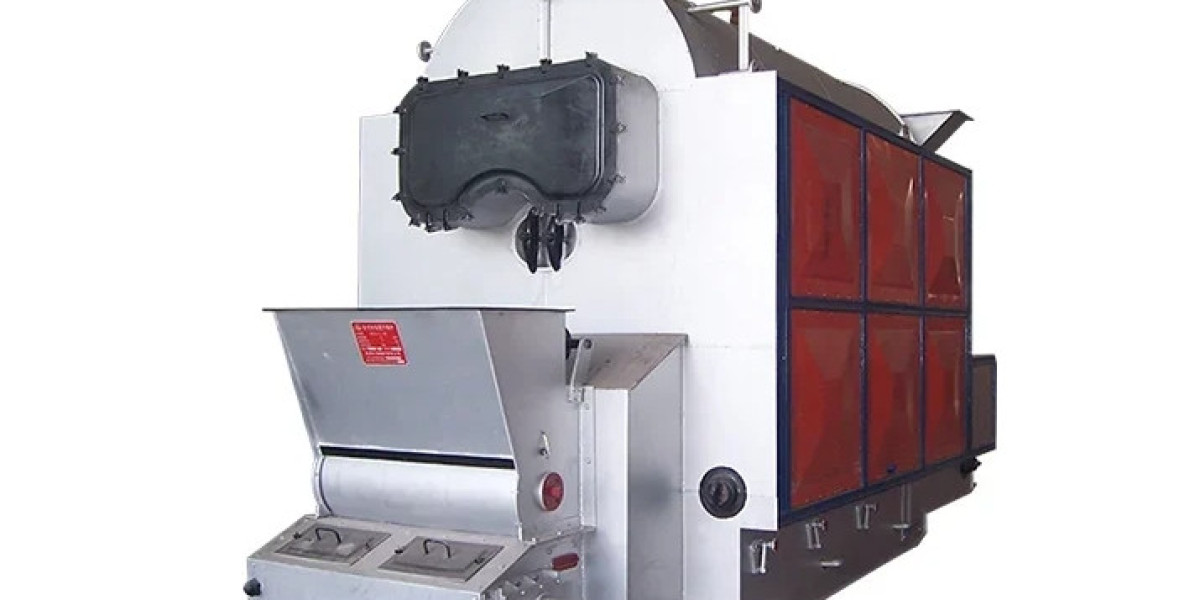Coal-fired boilers play a significant role in many industries, providing heat and power generation. Despite their efficiency, these boilers are under scrutiny due to environmental concerns surrounding their carbon emissions. The impact of coal-fired boilers on air quality and climate change is a topic of ongoing debate, with a focus on finding sustainable alternatives. As regulations tighten and the push for cleaner energy sources grows stronger, the future of coal-fired boilers faces challenges that require innovative solutions to balance energy needs with environmental responsibility.
Understanding Coal-Fired Boilers Operation
Efficiency
Coal-fired boilers are known for their efficiency in converting coal into thermal energy, making them a popular choice in various industries. The combustion process within these boilers is optimized to ensure maximum heat generation.
Coal is fed into the boiler through a mechanical stoker or by pulverizing it into powder form for better combustion. This method enhances the efficiency of coal utilization and minimizes waste.
Emissions Control
One crucial aspect of operating coal-fired boilers is emissions control. These boilers are equipped with sophisticated technologies such as scrubbers and electrostatic precipitators to reduce harmful emissions like sulfur dioxide and particulate matter.
To comply with environmental regulations, operators must monitor and maintain these emission control systems regularly. This ensures that the boiler operates within permissible emission limits.
Maintenance Practices
Regular maintenance practices are essential for the smooth operation of coal-fired boilers. This includes cleaning ash deposits, inspecting boiler tubes for corrosion, and ensuring proper functioning of safety devices like pressure relief valves.
By adhering to a strict maintenance schedule, operators can prolong the lifespan of the boiler and prevent unexpected breakdowns. This proactive approach also contributes to maintaining operational efficiency.
Safety Measures
Implementing stringent safety measures is paramount when dealing with coal-fired boilers due to the inherent risks associated with handling coal and high temperatures. Operators must undergo thorough training on safe operating procedures and emergency protocols.
Safety features like flame detectors, water level controls, and pressure gauges play a critical role in preventing accidents and ensuring worker safety. Regular safety audits help identify potential hazards and mitigate risks effectively.

Benefits of Coal-Fired Heating
Cost Efficiency
The Coal Gun stands out for its ability to reduce heating expenses significantly, offering savings of up to 70% compared to traditional heating systems. This makes it an attractive option for homeowners looking to cut down on their energy costs.
Fuel Efficiency
One key advantage of the Coal Gun boiler is its exceptional fuel efficiency, ensuring that every bit of powdered coal is utilized effectively. This results in longer burn times and less waste, maximizing the heating output while minimizing fuel consumption.
Versatile Applications
The Coal Gun offers a wide range of applications across various heating systems, making it a versatile choice for different setups. Whether used in residential homes or commercial buildings, this boiler can adapt to different environments and provide efficient heating solutions.
Safety Features in Focus
Maintenance
Coal-fired boilers like the Coal Gun prioritize maintenance to ensure optimal performance. Regular cleaning of ash buildup prevents blockages and maintains efficiency.
Sizes
These boilers come in various sizes to cater to different heating needs. From residential to industrial settings, there's a Coal Gun size suitable for every application.
Demand
The demand for coal-fired boilers remains steady due to their cost-effectiveness and reliability. The Coal Gun meets this demand with its efficient heating capabilities.
Type
The Coal Gun falls under the category of stoker-type boilers, known for their efficient combustion process. This type ensures consistent heat production while minimizing emissions.
Use
Safety features in the Coal Gun enhance its user-friendly use. From automatic controls to pressure relief valves, each feature is designed to prioritize safe operation.
The Coal Gun's safety features are meticulously engineered to safeguard both the boiler and its users. With mechanisms like high-temperature shut-offs and pressure relief valves, it ensures secure operation even during unexpected events. The inclusion of fail-safe systems adds an extra layer of protection against potential hazards.
In terms of maintenance, the Coal Gun simplifies upkeep through accessible components and clear maintenance guidelines. This proactive approach prolongs the boiler's lifespan and sustains its efficiency over time. By prioritizing regular maintenance, users can enjoy uninterrupted heating without compromising safety or performance.
When it comes to sizes, the versatility of the Coal Gun allows users to select a model that precisely fits their heating requirements. Whether it's a small residential unit or a large industrial system, there's a size option tailored to meet diverse needs effectively. This customization ensures optimal performance and energy efficiency based on specific demands.

Low Water Cutoff Mechanism
Protection Mechanism
The low water cutoff mechanism in a coal-fired boiler acts as a crucial safety feature. It helps prevent damage by shutting down the boiler when water levels drop too low. This protection mechanism ensures that the boiler does not operate without sufficient water, avoiding potential overheating and catastrophic accidents.
The Coal Gun's low water cutoff is designed to safeguard the boiler from harm due to low water levels. By immediately halting operations when water levels are inadequate, this feature prevents the boiler from running dry and causing severe damage. This proactive measure significantly reduces the risk of accidents and prolongs the lifespan of the boiler.
Operational Safety Enhancement
Implementing a reliable low water cutoff mechanism enhances operational safety by providing an added layer of protection against dangerous conditions. By promptly detecting low water levels and initiating shutdown procedures, this safety feature minimizes the risk of overheating and potential explosions. The Coal Gun's advanced design ensures that operational safety is prioritized at all times, giving users peace of mind while using the boiler.
Backup Systems and Coil Functionality
Backup Systems
The Coal Gun is equipped with multiple backup systems to ensure continuous operation. In case of a power outage, it has a battery backup that kicks in seamlessly. The Coal Gun features an emergency shut-off mechanism for safety during unforeseen circumstances. These backup systems are crucial for uninterrupted heating in residential and industrial settings.
Coil Functionality
The coil system in the Coal Gun plays a vital role in enhancing its heating efficiency. The coils are designed to maximize heat transfer from the burning coal to the water in the boiler. This efficient heat exchange process results in quicker heating of water, leading to improved overall performance and energy savings. The coil functionality is a key factor in making the Coal Gun an efficient heating solution.
Contribution to Reliability
The integration of backup systems and the effectiveness of the coil functionality significantly contribute to the reliability of the Coal Gun. By having reliable backup systems in place, the boiler can continue operating even during unexpected events, ensuring consistent heating output. Moreover, the optimized coil system enhances efficiency, reducing fuel consumption and maintenance requirements. This reliability makes the Coal Gun a dependable choice for both residential and commercial heating needs.
Efficiency of Coal-fired Boilers in Power Generation
Fuel Combustion
Coal-fired boilers operate by burning coal to generate heat, which then converts water into steam. The steam produced is used to drive turbines that generate electricity for various companies.
The combustion process involves the release of heat energy from burning coal, which raises the temperature of the boiler's water-filled tubes. This process enables efficient heat transfer and steam production.
Heat Transfer
Efficient heat transfer within coal-fired boilers is crucial for optimal power generation. As coal burns, it releases energy that heats the boiler tubes, transferring this heat to the water circulating around them.
This heat transfer mechanism ensures that water is converted into high-pressure steam, which drives turbines to produce electricity efficiently.
Emissions Control
Controlling emissions is a critical aspect of enhancing the efficiency of coal-fired boilers in power generation. Companies are increasingly investing in technologies like flue gas desulfurization systems to reduce harmful emissions.
These systems help remove sulfur dioxide from flue gases before they are released into the atmosphere, minimizing environmental impact.

Summary
The exploration of coal-fired boilers has shed light on their operational intricacies, safety protocols, and efficiency in power generation. Understanding the mechanisms behind these boilers reveals their significance in heating applications and electricity production. The safety features, including the low water cutoff mechanism and backup systems, underscore the importance of maintaining optimal functionality to ensure safe operation and longevity. Moreover, the efficiency of coal-fired boilers highlights their role in power generation and the broader energy landscape.
For those seeking reliable heating solutions or delving into power generation technologies, further research into coal-fired boilers is encouraged. By grasping the nuances of their operation and benefits, individuals can make informed decisions regarding their utilization in various settings. Exploring advancements in safety features and efficiency enhancements will contribute to maximizing the potential of coal-fired boilers in meeting diverse energy needs.
Frequently Asked Questions
How do coal-fired boilers operate?
Coal-fired boilers burn coal to generate heat, which is used to produce steam. The steam produced is then used for various applications such as heating or power generation.
What are the benefits of using coal-fired heating systems?
Coal-fired heating systems offer cost-effective heating solutions and can provide consistent warmth even in extreme weather conditions. They are also known for their reliability and long lifespan.
What safety features are typically found in coal-fired boilers?
Common safety features in coal-fired boilers include low water cutoff mechanisms, pressure relief valves, and backup systems to ensure safe operation and prevent accidents.
How does the low water cutoff mechanism work in a coal-fired boiler?
The low water cutoff mechanism in a coal-fired boiler is designed to shut down the boiler if the water level drops below a safe operating level. This helps prevent damage to the boiler and ensures safety.
What is the role of backup systems and coil functionality in coal-fired boilers?
Backup systems and coil functionality in coal-fired boilers serve as secondary mechanisms to maintain operation in case of primary system failures, ensuring continuous heat or steam generation.
How efficient are coal-fired boilers in power generation?
Coal-fired boilers are known for their high efficiency in power generation, converting thermal energy from burning coal into electricity with minimal energy loss, making them a popular choice for power plants.








